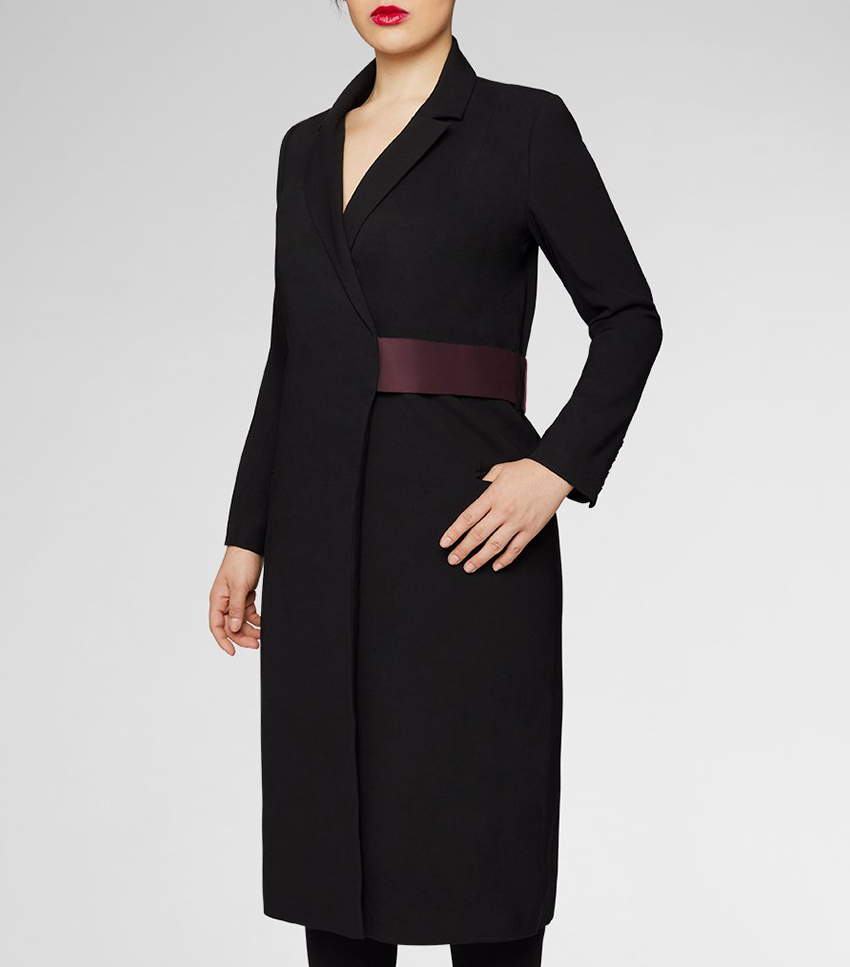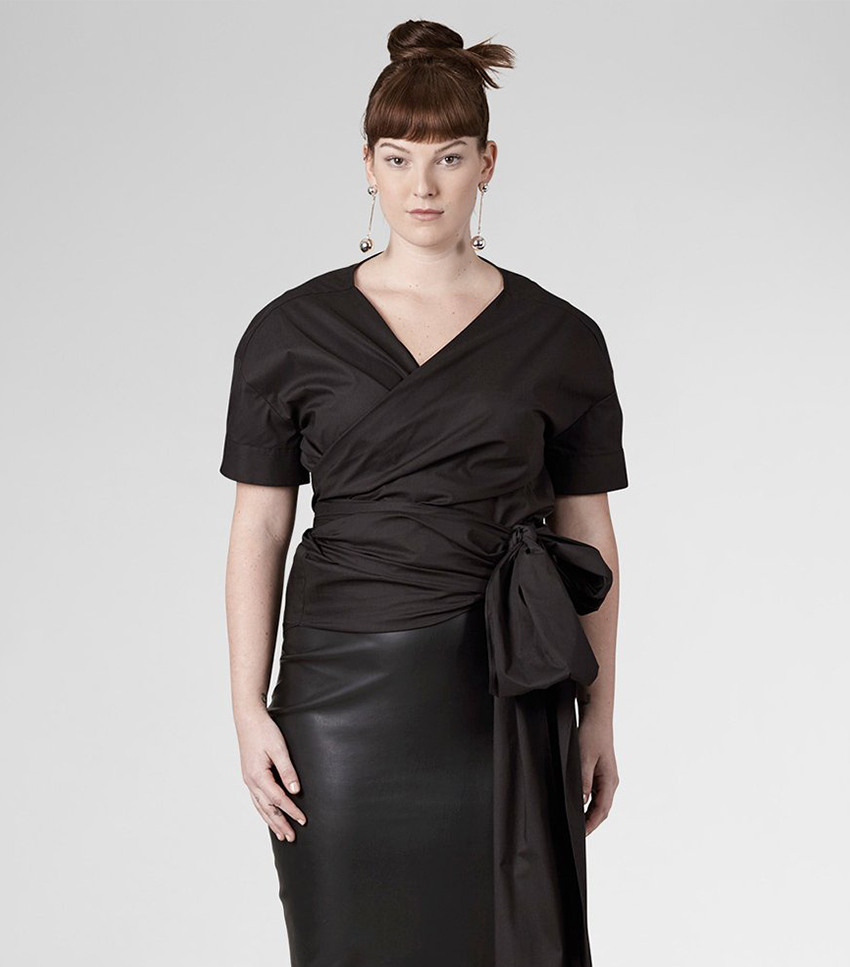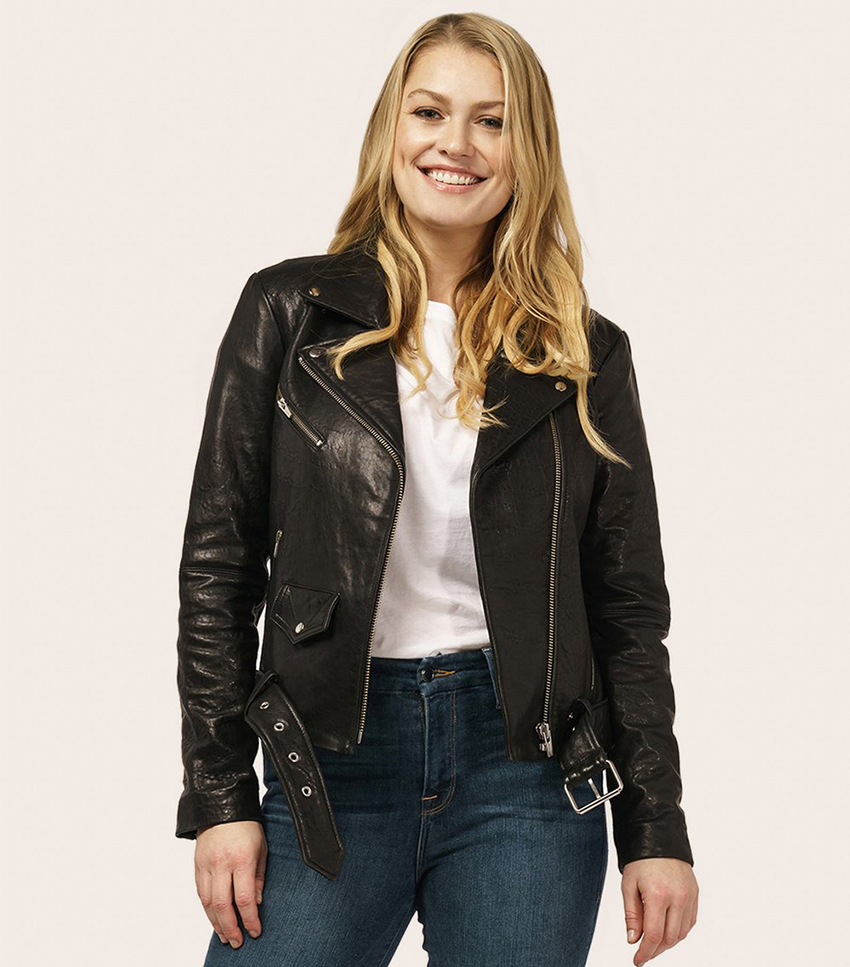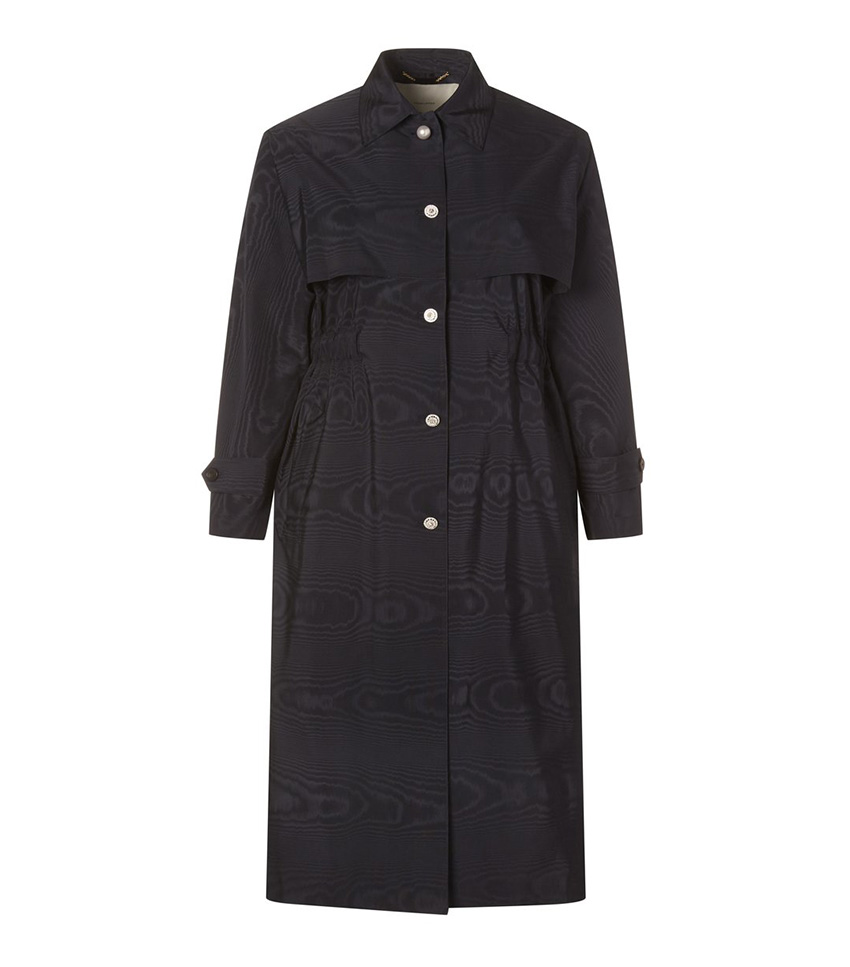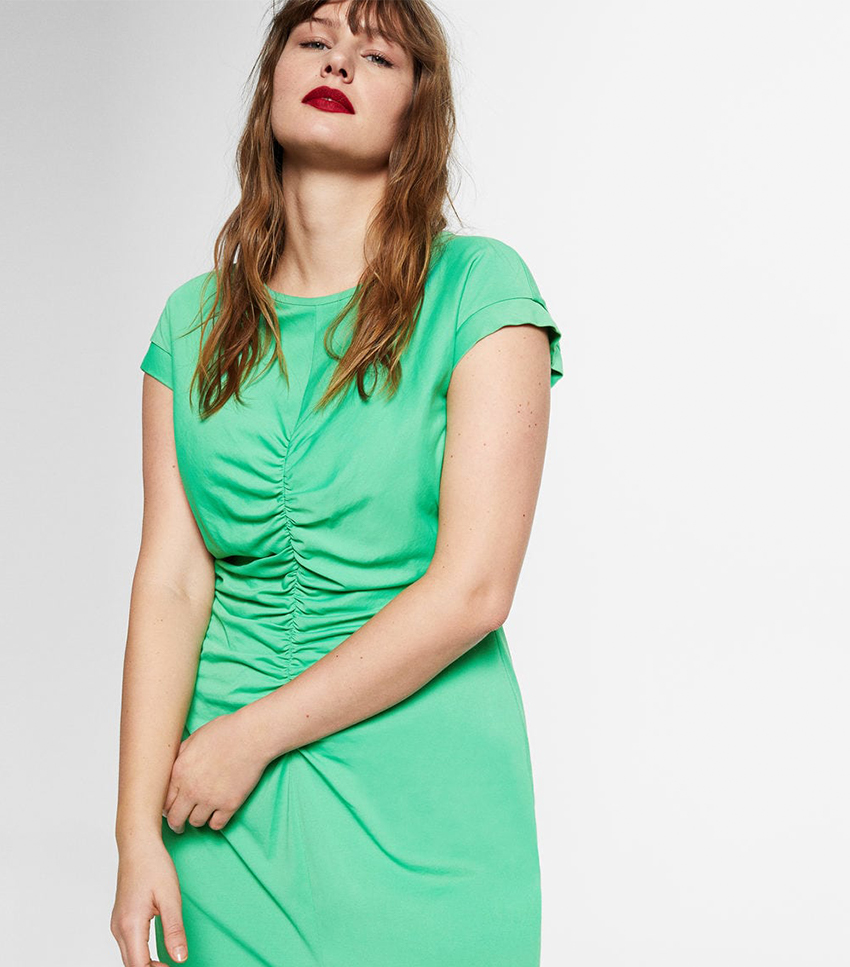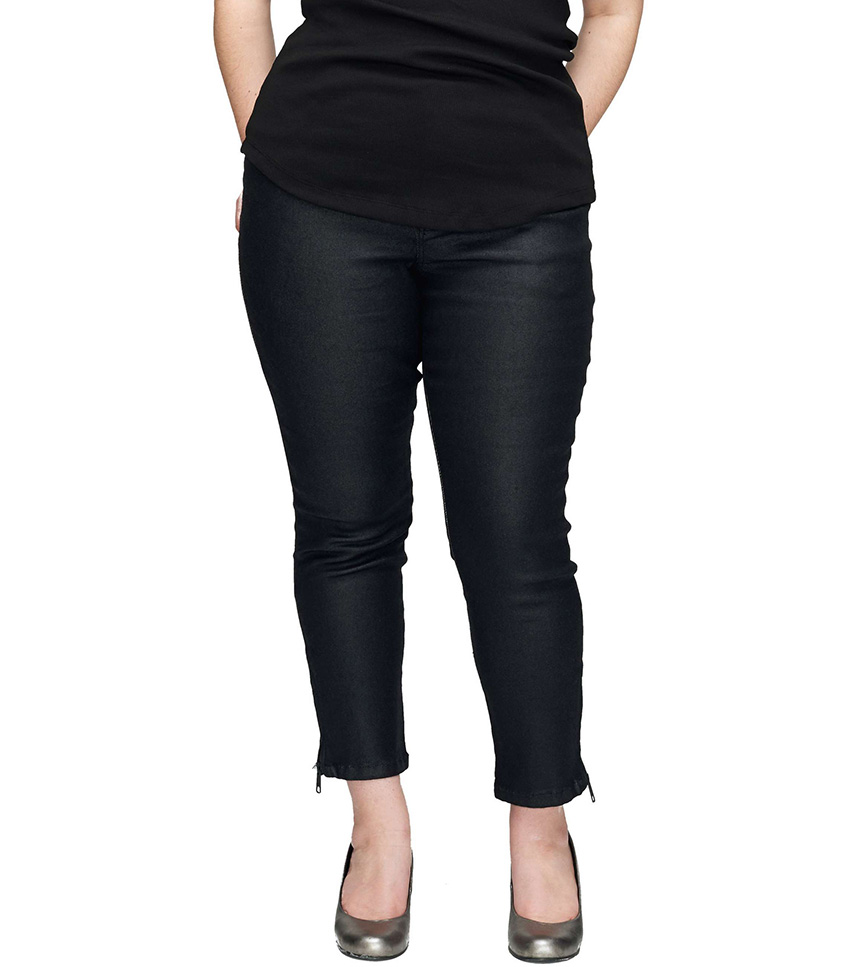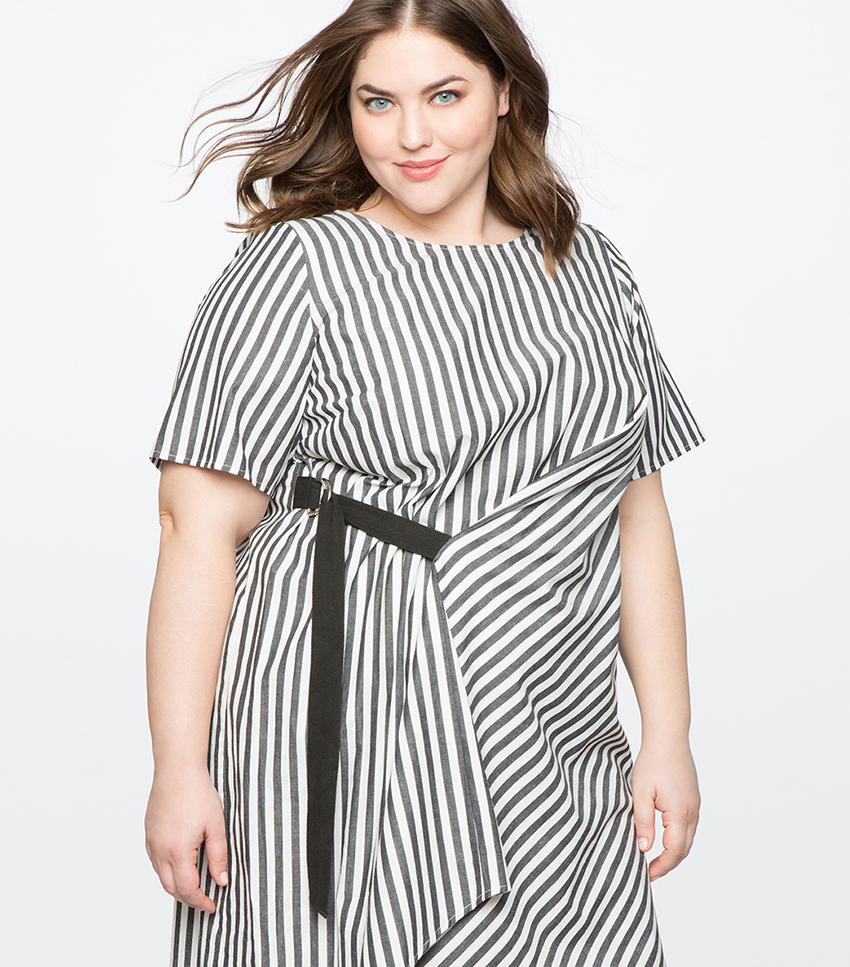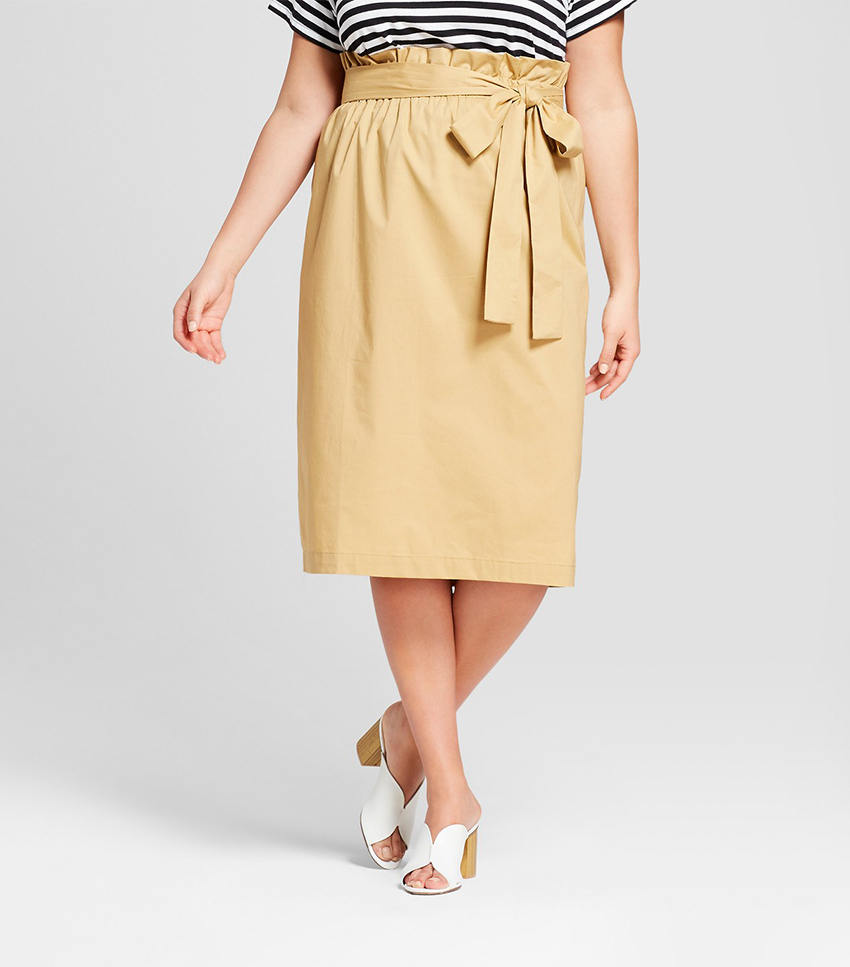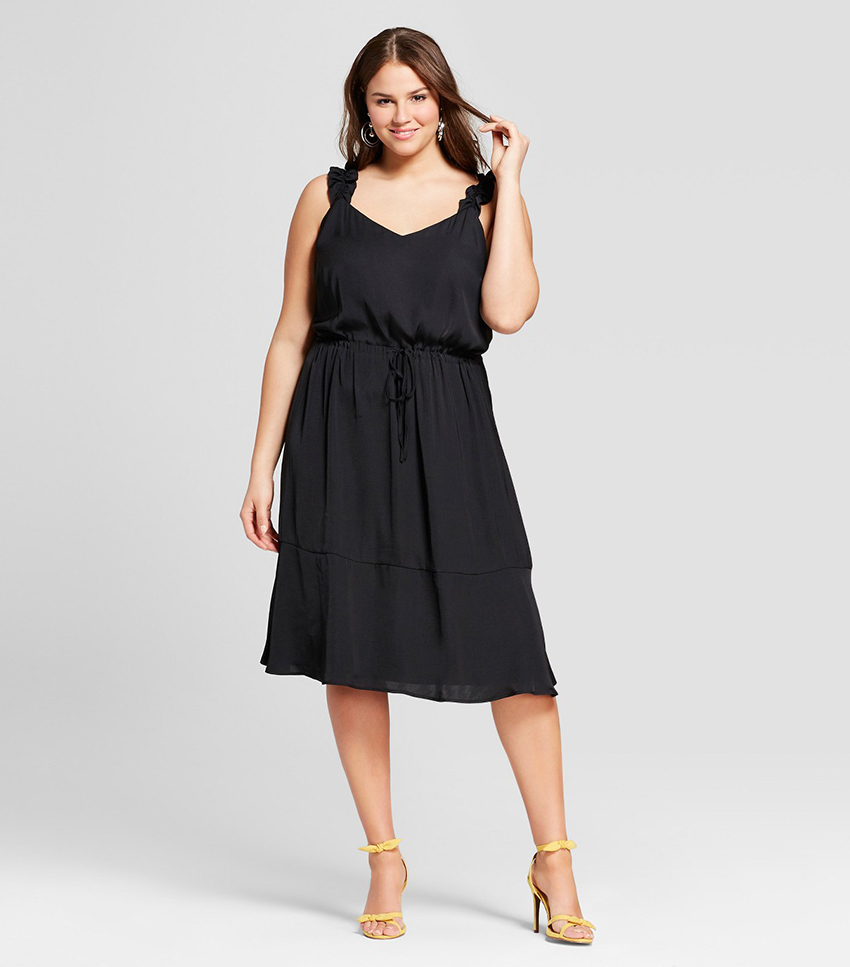Fashion People Are Proving the Term "Plus-Size" Is Far From Perfect
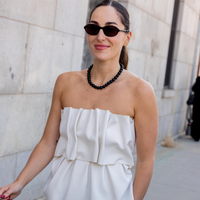
Merriam Webster tells me that the first-known use of “plus-size” was in the year 1942. For a term that’s (relatively speaking) contemporary, it’s hard to pin down a clear definition. “Extra large clothing” is what the dictionary authority offers, while clothing above a certain size is what shoppers have come to identify with it. As for that certain size? Well that varies, too. For retailers like ASOS, plus sizing begins at size 12. For Mango's Violeta line, it’s size 10. For Eloquii, it’s 14. We could continue, but for the sake of brevity, we think you get the idea.
We’ll be the first to admit that body inclusivity in the fashion space still has a long way to go. Yes, we can celebrate designers like Prabal Gurung and Christian Siriano whose runways continue to be the most inclusive, and we can continue to champion models like Candice Huffine and Ashley Graham. But there’s a larger conversation to be had around this community and its relationship with the fashion industry: the terminology.
While everyone has different opinions on using the term, there's one overarching theme that can’t be ignored. To get a clearer sense of what the term “plus-size” really means and whether or not it has a future in fashion, we spoke with the designers, models, and influencers who all have a few poignant things to say on the matter.
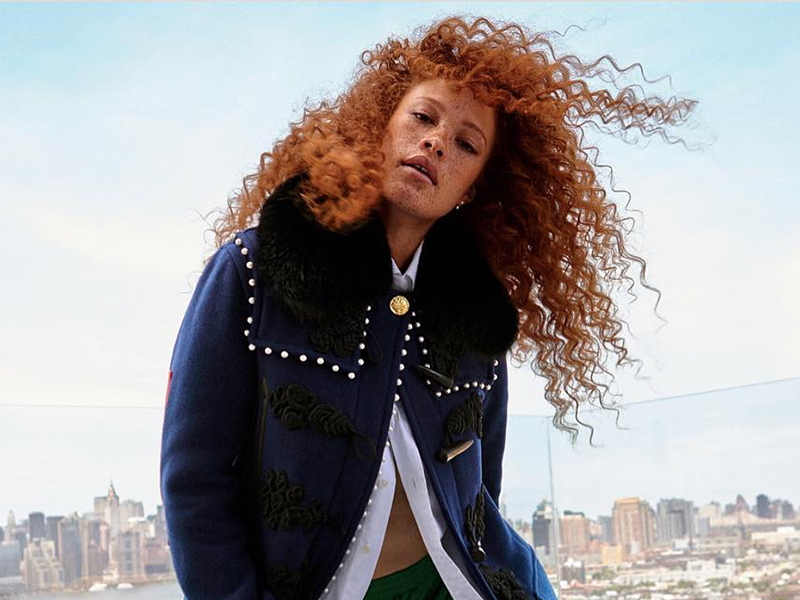
Alex Waldman, co-founder of the size-inclusive brand Universal Standard, points out that “the term ‘plus-size’ describes a group of women who actually represent a vast majority of American women.” She refers, of course, to the reality that 67% of American women are plus size. “It has become shorthand for everything over a certain size. I don’t think this term has a future because the future of fashion is just inclusive. It’s just going to become clothing for women.”
There's a technical use for the term that Waldman touched on, which is to indicate in a literal sense an article of clothing’s size. While co-founder of clothing line Premme and fashion blogger Nicolette Mason doesn’t have a problem with the term as it relates to the sizes themselves, she told Who What Wear, “I’d love for qualifiers not to be necessary, but until all brands, all media, and content are truly inclusive, it feels like a necessary part of the language. Unfortunately, I think it can sometimes feel tokenizing or like an afterthought.”
“It’s a complicated term, and fashion is still playing catch-up with this movement,” explains Kathryn Retzer, co-founder and creative director of 11 Honoré. “We love the way that advocates for inclusivity have embraced labels and made them their own, but we hope that eventually, the industry is able to throw out labels and that a size-run 0 to 24 will be the norm, not the exception.”
We couldn’t agree more that the future of how this community is represented by brands and in the media all comes down to the lack of terminology we give it. Only by erasing how plus-size fashion is named, not trying to redefine it, we can call our industry an inclusive one.
Offering a final say in the matter, Jordyn Woods expresses. “There’s no reason that we need to be labeled. Labels create segregation. It’s amazing to be different, and you should own your individuality, but we all should feel like we are one.” RT, Jordyn.
Until we begin to start thinking of this community differently (as part of the whole of fashion), we won’t be able to rename the term “plus-size.” So we shouldn’t be brainstorming an alternative; we should be brainstorming ways to knock down the barriers that require the adjective in the first place.
Shop our favorite size-inclusive brands:
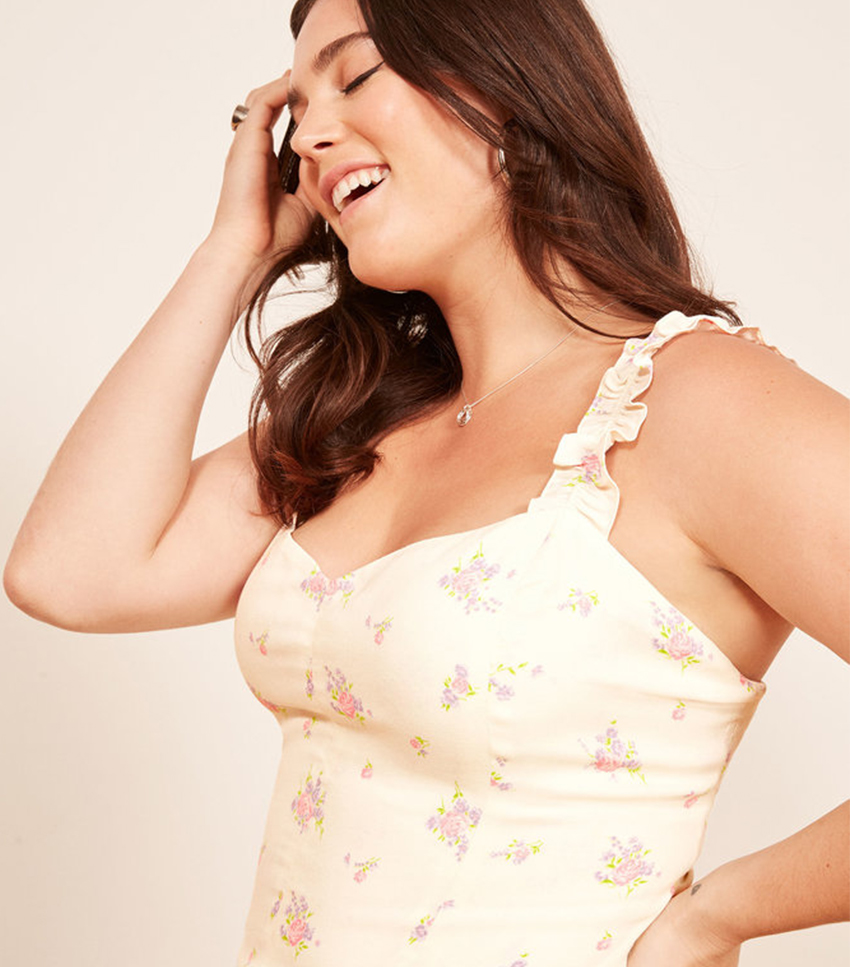
Available in sizes 0 to 22.
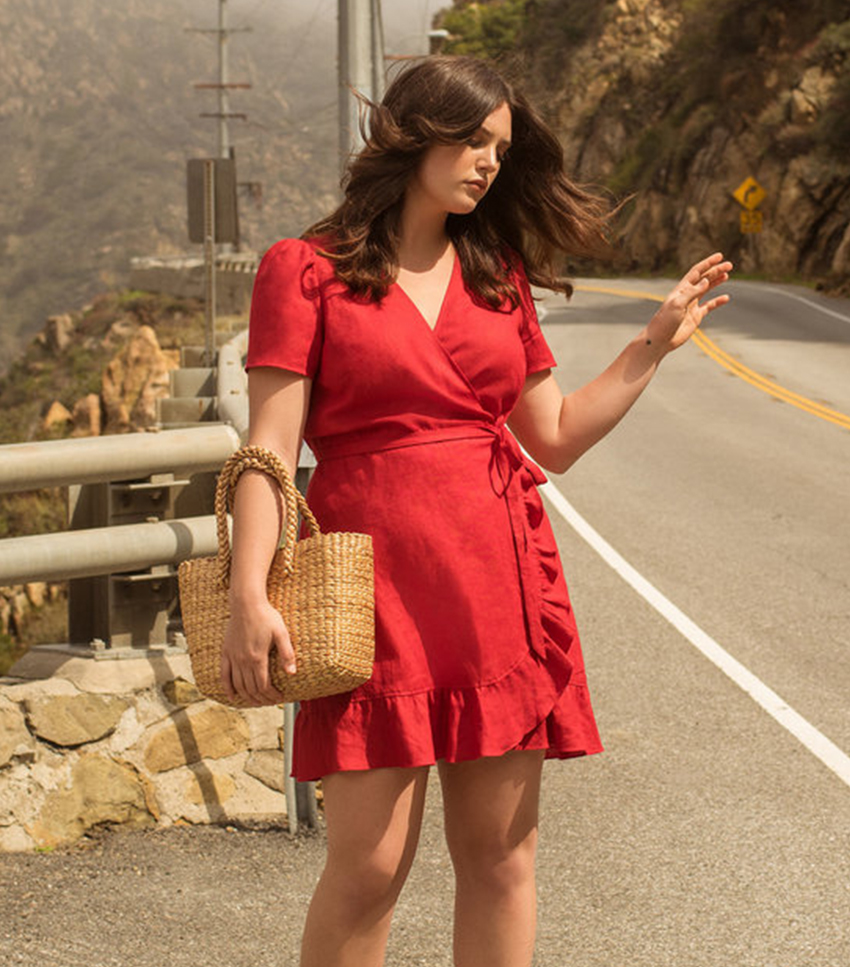
Available in sizes XS to 3X.
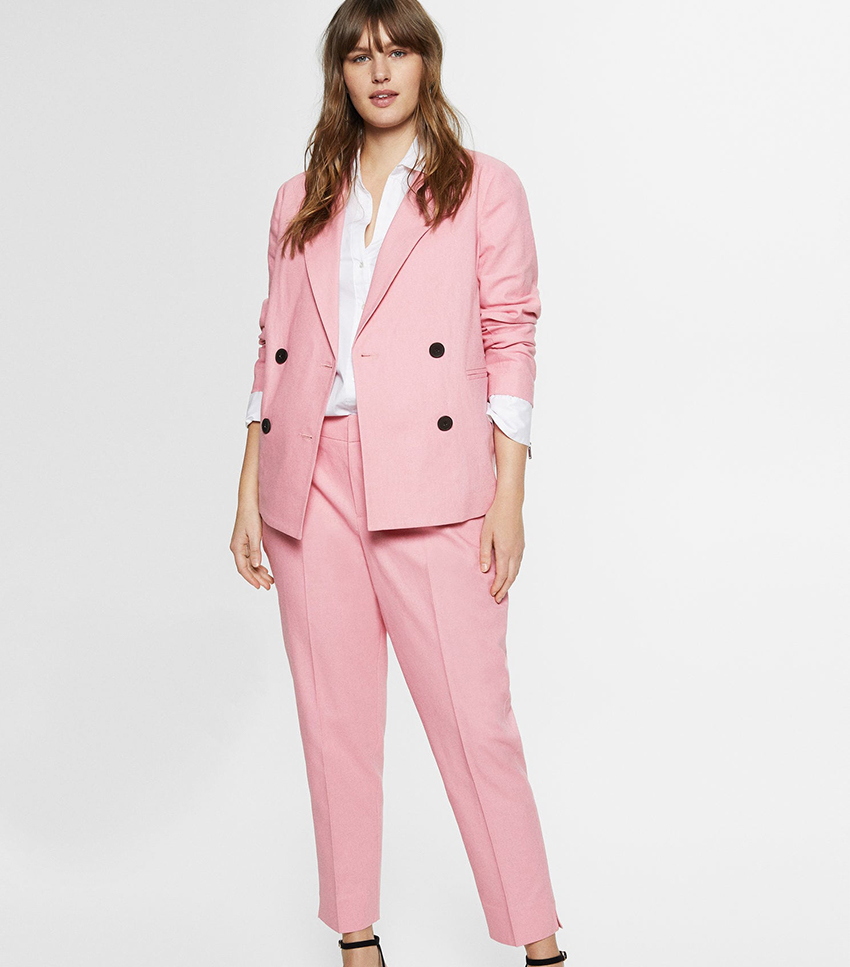
and Linen Suit Trousers ( $100 )Both available in sizes XS to XL.
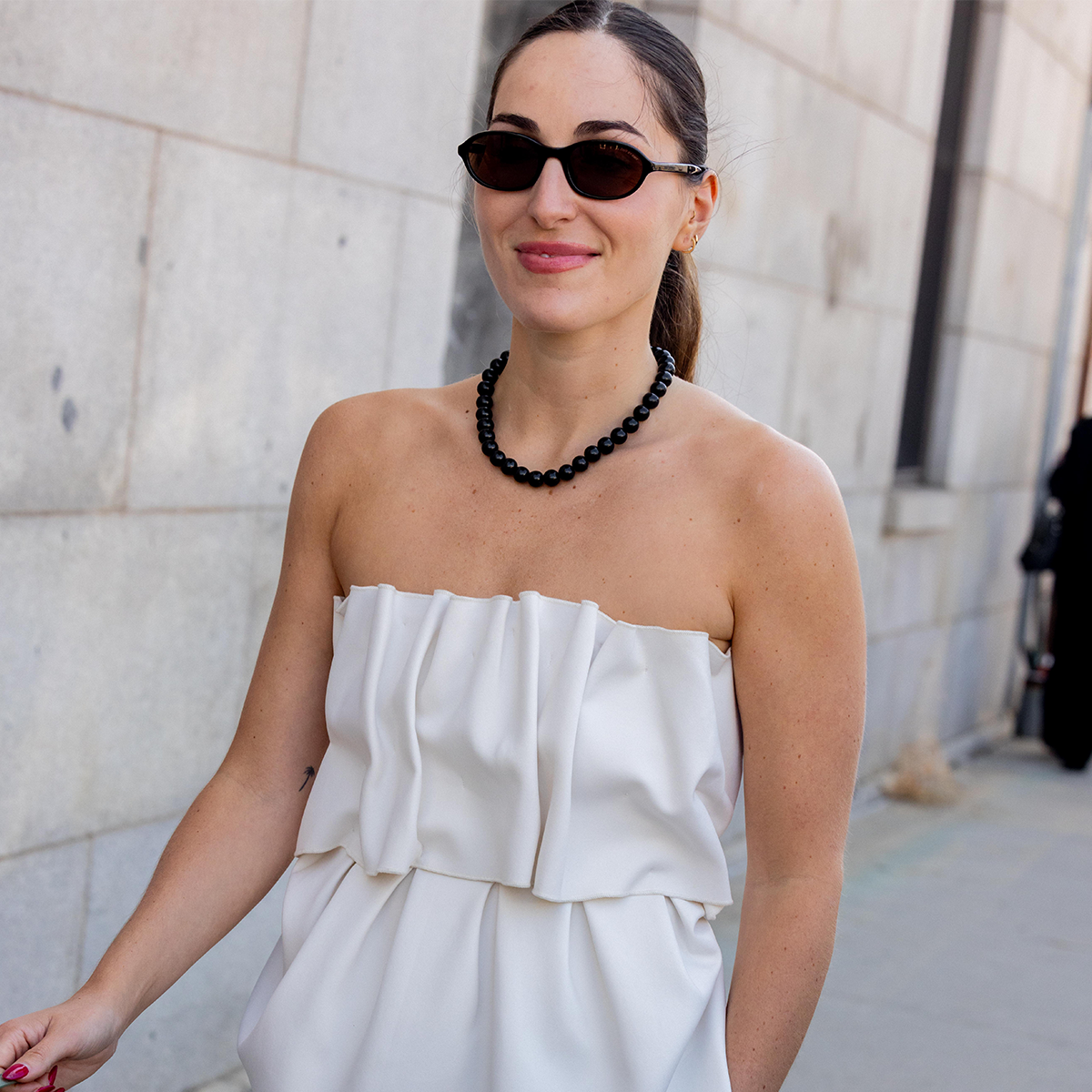
Anna is an NYC-based senior fashion editor who has been a member of theBest Knockoff Luxury Clothing team for over eight years, having begun her career in L.A. at brands like Michael Kors and A.L.C. As an editor, she has earned a reputation for her coverage of breaking trends, emerging brands, luxury shopping curations, fashion features, and more. Anna has penned a numberBest Knockoff Luxury Clothing cover interviews, including Megan Fox, Julia Garner, and Lilly Collins. She also leads the site’s emerging travel vertical that highlights all things travel and lifestyle through a fashion-person lens.
